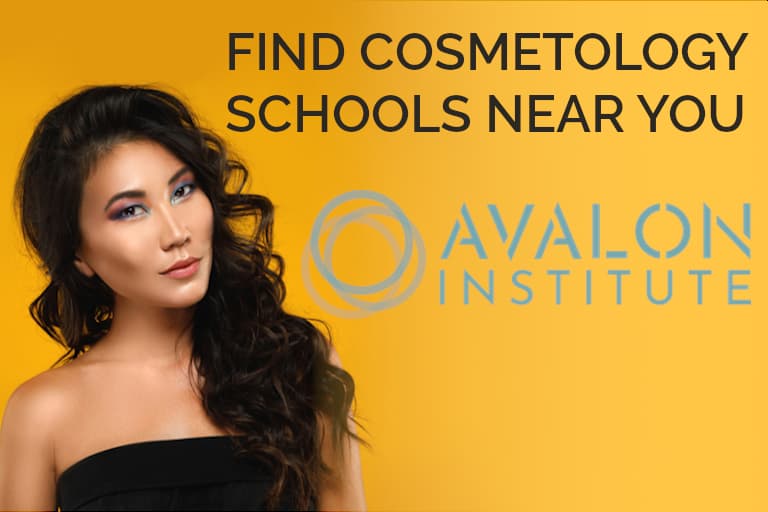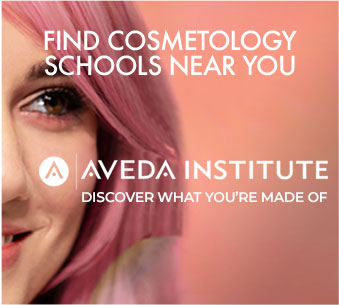Permanent Makeup Artist License Requirements
Permanent makeup artistry spans the fields of cosmetology, tattooing, and sometimes healthcare. That can make the licensing process more complicated, depending on your state's laws.
Some states are working to reform and streamline their licensing processes in response to concerns about customers negatively affected by work performed by unqualified, unlicensed permanent makeup artists.
As the industry grows, laws around permanent makeup artistry will likely continue to evolve. Because of this, you may encounter some inconsistencies or gray areas as you work toward licensure.

sponsored content, school availability varies by location

sponsored content, school availability varies by location

sponsored content, school availability varies by location

sponsored content, school availability varies by location

sponsored content, school availability varies by location

sponsored content, school availability varies by location
Getting a Cosmetic Tattoo Artist License
The requirements for obtaining a permanent makeup artist license vary depending on your state's requirements as well as your permanent makeup artist career goals, specialty, and work setting.
Some states license permanent makeup artists as body or tattoo artists. Others require special certifications after you earn an esthetician or cosmetologist license. In some states, you only need a license in specific settings like salons or healthcare facilities. In other states, you don't need a license at all.
Additionally, while some states' cosmetology boards regulate permanent makeup artistry, it may be regulated by other states' departments of health.
Learn More About Permanent Makeup
What Are Some Common Requirements for Permanent Makeup Licensure?
In the states that do require licensure for cosmetic tattooing, you can expect requirements like passing a standardized exam, earning a required number of training hours at an approved permanent makeup artist school, and/or working under supervision, such as in an apprenticeship. For example:
Nevada
Nevada issues permits to Invasive Body Art Decoration Establishments—or places where tattooing, piercing, or permanent makeup art is performed—rather than individual practitioners. Any employee of the establishment is included under the permit.
Alaska
Alaska issues a Body Piercing, Tattooing, or Permanent Cosmetic Coloring (PCC) License. Its PCC standard requires 250 hours of training at a board-approved school or training program. You may also opt for licensure by examination.
New Mexico
New Mexico offers Body Art Practitioner licenses to applicants who successfully complete an approved apprenticeship for practical skills in their chosen area of focus (such as eyebrow or eyeliner techniques, scar camouflage, etc.) and 100 hours of theory studies in an approved training program. Afterward, you must pass a jurisprudence exam with a 75% or better and demonstrate that you've received training in CPR, first aid, and bloodborne pathogen safety.
Do I Have to Get a License to Be a Permanent Makeup Artist?
Note that even states that don't enforce licensure might have other requirements.
Louisiana
In Louisiana, the state's Department of Health regulates commercial body art under its Food and Drug Program. Facilities and operators must receive permits and register individual practitioners with the state.
Idaho
Idaho state law considers permanent makeup artistry as tattooing, which does not require a license in the state. However, individual businesses performing tattoos must be permitted. The artists must observe health department requirements, which means they must be at least 18 years old and receive training in procedures for health, safety, and bloodborne pathogens.
Completing bloodborne pathogen training is a federal requirement mandated by the Occupational Safety and Health Administration (OSHA) that applies no matter where you live.
Fortunately, some resources offer licensing and contact information for each state's governing body. An excellent place to start is the American Academy of Micropigmentation (AAM). You can also check out the Society of Permanent Cosmetic Professionals (SPCP). However, also make sure to contact your state oversight body to make sure you're accessing the most current regulations.
Board Certification for Permanent Makeup Artists
Well-informed consumers and employers looking for excellent permanent makeup artists know how many bad ones have slipped through the regulatory cracks. This dynamic is what makes board certification such a potent and essential tool.
Is a Permanent Makeup License the Same as a Certification?
Becoming board-certified is not the same as getting a license. It's a voluntary process that typically involves additional training and an exam. As the permanent makeup industry expands and is increasingly recognized as part of mainstream cosmetology, industry-recognized certifications become more important in two ways: They validate your qualifications, and they protect your clients from unskilled and poorly trained practitioners.
So, while certification isn't required, it can be a great way to set yourself apart in a crowded and often poorly regulated field by demonstrating you've gone above and beyond minimum standards.
One popular certification is from the Society of Permanent Cosmetic Professionals (SPCP). The SPCP offers a Certified Permanent Cosmetic Professional (CPCP) certification process. This involves a course of study of 100 hours, then an exam that demonstrates a distinct level of knowledge and dedication to the profession.

sponsored content, school availability varies by location

sponsored content, school availability varies by location

sponsored content, school availability varies by location

sponsored content, school availability varies by location

sponsored content, school availability varies by location

sponsored content, school availability varies by location
Permanent Makeup Continuing Education
The best permanent makeup artists are the ones who never stop learning. Without continuing education, you may fall behind in the latest techniques and grow stagnant in your current skills. You can always enroll in new courses to learn techniques you don't already know, but taking courses isn't the only way to ensure you're continuously improving.
Some professional organizations have national industry conventions that offer courses. The conventions are a great way to learn the newest techniques and network with fellow permanent makeup artists. PMU Vegas Conference is just one of many national industry conventions—the SPCP holds an annual convention, too.
Another way to keep your knowledge fresh and network with your peers is to join trade organizations such as the Society of Permanent Cosmetic Professionals (SPCP), the American Academy of Micropigmentation (AAM), the Permanent Makeup Society International (PMSI), or the League of Permanent Cosmetic Providers (LPCP). These organizations provide the latest information and resources to help you grow as a permanent makeup artist.
Permanent Makeup Schools in Your State
- Alabama
- Alaska
- Arizona
- Arkansas
- California
- Colorado
- Connecticut
- Delaware
- D.C.
- Florida
- Georgia
- Hawaii
- Idaho
- Illinois
- Indiana
- Iowa
- Kansas
- Kentucky
- Louisiana
- Maine
- Maryland
- Massachusetts
- Michigan
- Minnesota
- Mississippi
- Missouri
- Montana
- Nebraska
- Nevada
- New Hampshire
- New Jersey
- New Mexico
- New York
- North Carolina
- North Dakota
- Ohio
- Oklahoma
- Oregon
- Pennsylvania
- Rhode Island
- South Carolina
- South Dakota
- Tennessee
- Texas
- Utah
- Vermont
- Virginia
- Washington
- West Virginia
- Wisconsin
- Wyoming
